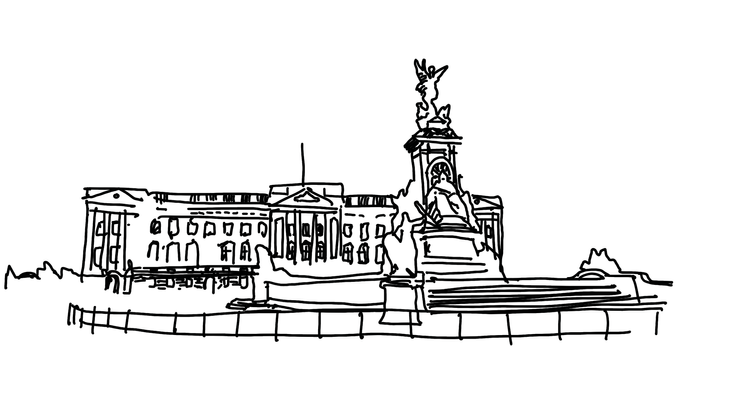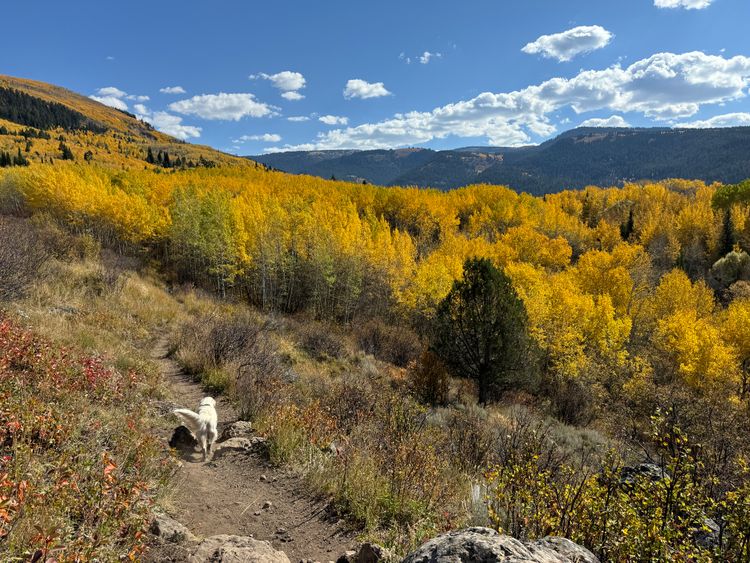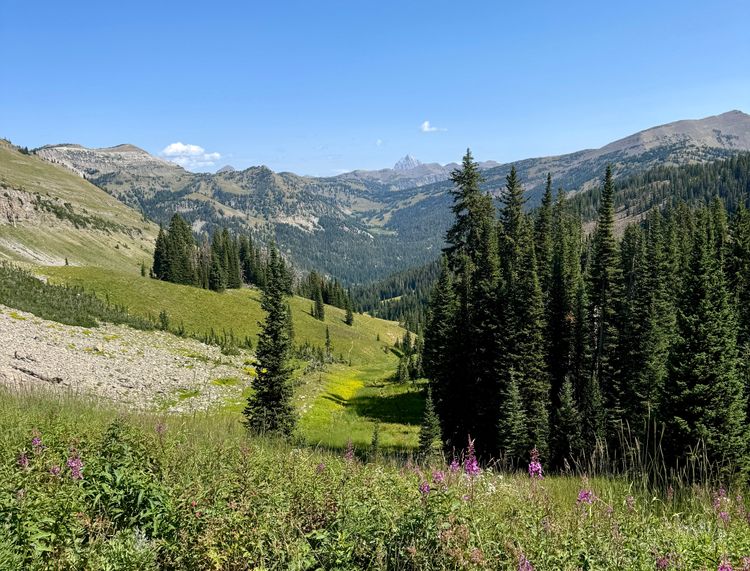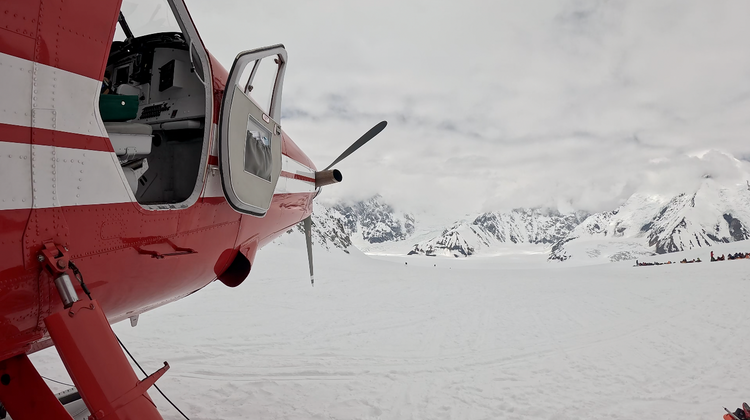A piece of the mosaic
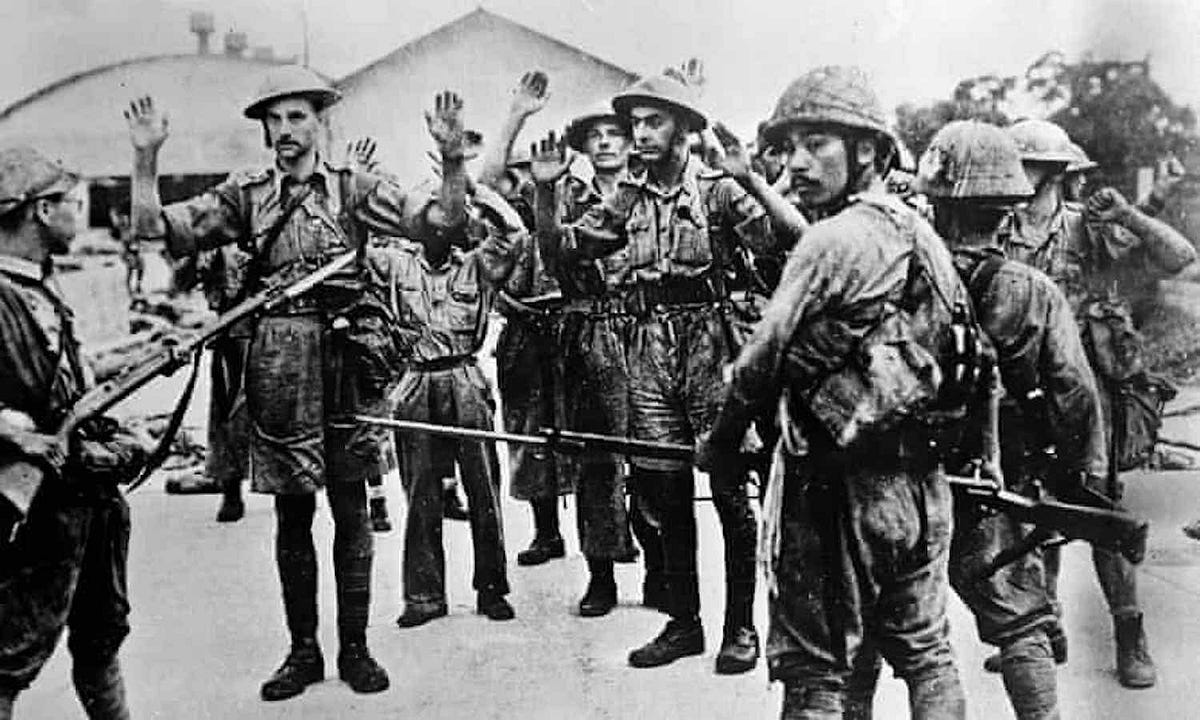
My early years were full of sporadic uprootings: The life of a military brat. I was born on Elmendorf Air Force Base in Anchorage, Alaska. When I was four, the family moved to Virginia where my father worked at Langley, then onto Suffolk, England in the late 1990s, when he was assigned to fly fighter jets at RAF Lakenheath. We moved into a spacious Tudor-style house that our landlord, Nigel, built by hand with his son in Woodditton, a village sitting in the beautiful green fields of Cambridgeshire. I still dream about it.
Nigel was an unusual landlord in that he would show up to our house every day like he was going to work. He always had some project in process, whether it was mowing the lawn or something more ambitious like building a car port that resembled an aircraft hangar at the top of the driveway (he loved and admired aviation and desperately wanted a personal gyrocopter). My parents thought it was a little odd at first, but the sixty-something Nigel was easy to like and generous. He treated me like a grandson. “I’m going to turn you into an English boy yet,” he’d proclaim, acquainting me with British sweets, proper English tea, and lots of local history. He’d take me to wheat fields containing the overgrown remains of old B-17 airstrips, or down to Duxford Air Museum to clamber through the musty aircraft of every generation. These things sowed the seeds of my abiding interest in history and flying.
Nigel loved Americans, particularly those in the armed services, and, even more particularly, fighter pilots. He and his siblings lived through the worst of the privations of the Second World War. He would tell me stories about robbing the currant bushes of neighbors when he was a young lad. They had very little to eat as German U-boats crimped British supply lines in the Atlantic. For something to do, he’d go down with his pals to the internment camps set up on the Newmarket horse-racing course for captured Italian and German troops and barter packs of cigarettes for small toys they’d whittle out of scrap wood. The Americans, with their planes and lend-lease, helped turn the tide and ultimately alleviated the rationing. He recounted to me often how magical it was the first time he had a banana after the allies “put it to the Jerries.”
Over our years in Woodditton, we met the village locals, many by Nigel’s introduction. There were the folks at The Three Blackbirds pub, Nigel’s sister Jill and her husband, Roy, whose grandson, Oliver, became one of my best friends. There was his brother, John, and his wife, Beryl, who lived right next door. Gradually, our network expanded up the road until we met a reserved but friendly couple named Jack and Doris Scrivener. It seemed as though they constantly tended to their vegetable gardens. Nigel mentioned in passing one day that Jack had fought the Japanese in the war and left it at that.
Two decades later, I was home at my parents’ house for Christmas and, in the process of cleaning out the closets in the basement, unearthed Jack’s spiral-bound book, Memories: An account of life as a soldier and Far East POW during World War II. I shirked my cleaning duties and sat down with it. I’ve since read it three times. The detail of Jack’s recollections was astonishing. He appeared to remember everyone he encountered, along with every meal (and bowel movement) during the war. The richness of his memories struck a strong chord with me because they animated an older version of a world that I knew. The lush, green landscape of Suffolk, with its rolling fields. The winding road through Woodditton. The cozy local pub. His memories mapped onto my own, and I could envision these places I knew as a kid but as if through a sepia tint, beset by menacing German bombers.
Dan Carlin covers various wars throughout history in minute detail in his podcast, Hardcore History. He says frequently that these events, especially the great wars of the twentieth century, spanned so much geography and involved so many people that they are impossible to fully comprehend. Every war is a vast mosaic of individual tales, and many of the pieces are lost. Professional historians compile a set of these accounts and the autobiographies of key players — generals, presidents, and prime ministers — to produce sweeping narratives and illustrate the grand strategies at work. But while these histories help us make sense of what happened on a broad scale, they remove us from the everyday heroism and suffering of the individuals who fought it. The long stretches of boredom, or persistent fights with disease, hunger, and despair. Jack refers to his story as “my war” as if to acknowledge that his experience was part of some enormous and unknowable fabric of memory.
Jack Scrivener was born in 1920 in Cambridgeshire. His father died when he was eight years old and he quickly found himself working the local farms after his secondary schooling to support himself and his family, but he hated farmwork and wanted badly to see the world:
“It was difficult for me to leave home as I was the only son at work and my mother needed my money badly to keep the wolf from the door. Lots of my pals had joined the army and with the likelihood of war in the near future I decided to join the Territorial Army. It was 1939 and Hitler was overrunning most of Europe so it seemed I would get my wish for adventure at last. How stupid young people are.”¹
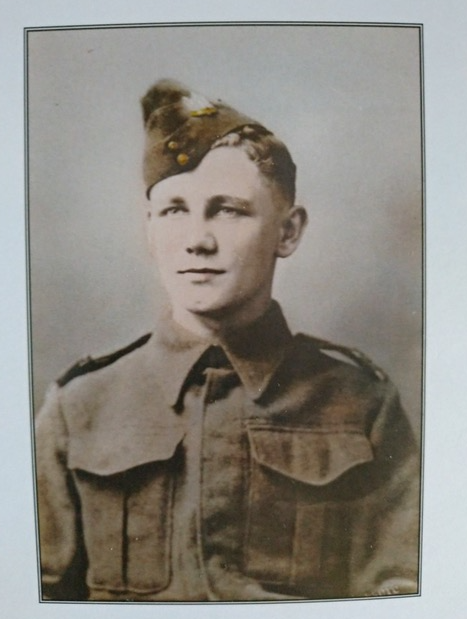
Jack, circa 1939.
The army assigned Jack to the First Battalion Cambridgeshire Regiment and began his training in Newmarket. Here, they taught him to use a Lewis anti-aircraft machine gun and he began a stint guarding a now-defunct local airfield called RAF Stradishall.
“Sometimes we’d receive a message saying ‘Station Commander taking off shortly,’ and his little plane would be wheeled out, and away he went. A few hours later another message ‘Station Commander coming and don’t bloody well shoot him down.’”²
German forces launched their “Blitzkrieg,” or “lightning war.” Hitler’s panzers raced through a gap between allied armies at Sedan, in France, encircling the British Expeditionary Force (BEF) and pushing them to the beach at Dunkirk in May of 1940. After a fleet of thousands of small vessels and fishing boats heroically extracted BEF and French soldiers to the safety of England, the last major resistance to the German conquest of Europe was gone. The Battle of Britain began. At this point, Jack’s regiment moved to a coastal defense position between Cromer and Great Yarmouth, where they dug trenches and laid barbed wire, preparing for a full-scale German land invasion.
“At this stage of the war we stood with our Empire comrades waiting for the blow we knew would come. Sometimes at night I would be standing on the cliffs below Mundesley looking out to sea and thinking what a great period of history this will be. Although this small country was facing the mightiest military power on earth, not once did I think we would be defeated.”³
It helped some that the formidable Royal Navy, the largest in the world at the beginning of the war, also sat in the channel, but, as he saw later, airpower projection quickly became the new game in town.
Jack didn’t have to wait long. Soon, German Heinkel bombers appeared over the channel swooping inland to strike RAF airfields and civilian targets like London. In one episode, Jack, operating a Bren gun, exchanged fire with Luftwaffe bomber crews flying low over the beach.
After some weeks, Jack’s company rotated off the beach into different billeting near Norwich.
“I went with my mate Claude Starling but we had a bit of trouble getting out of the billet. A lance corporal barred our way out and told Claude he wasn’t allowed to go. Claude never hesitated. He hit him on the jaw and down he went….They sorted us out when we returned but it didn’t bother us a lot, our attitude was we might be dead in a few weeks.”⁴
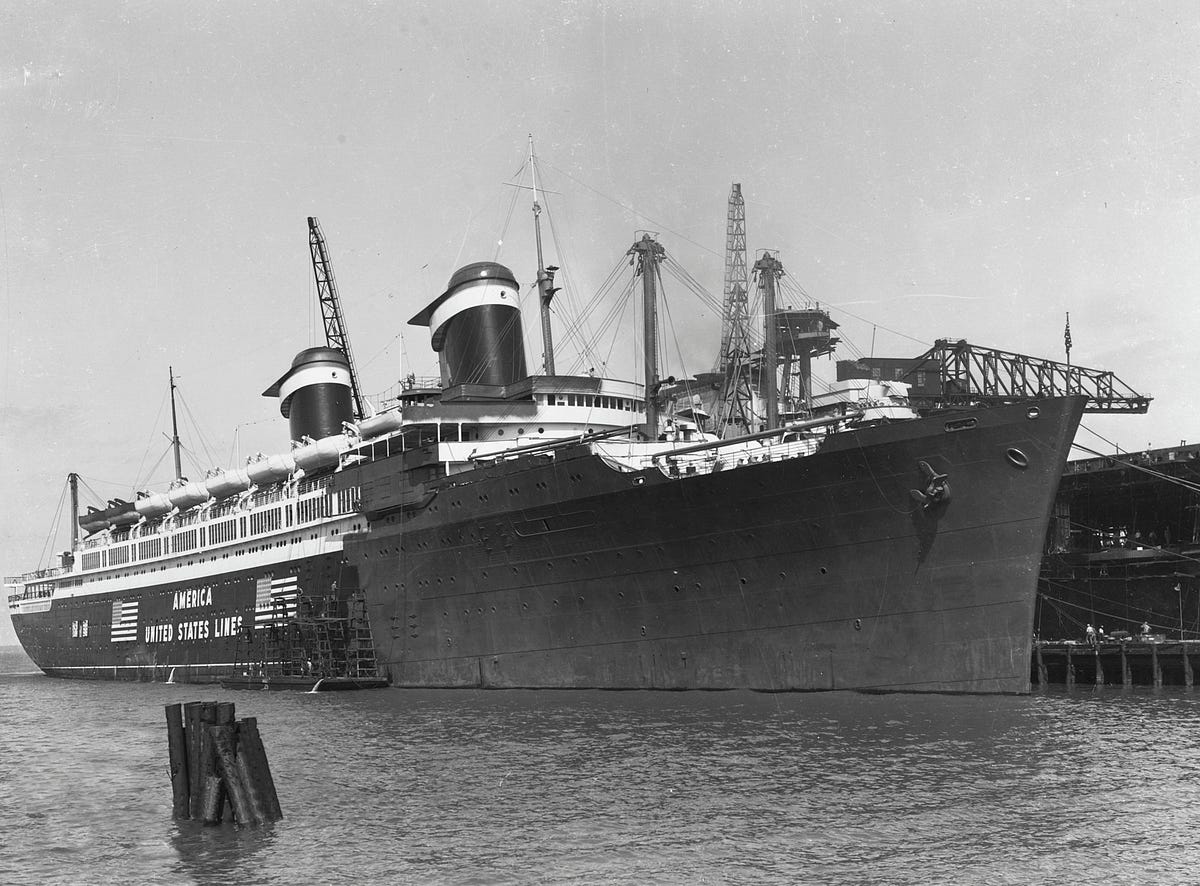
The "America" was converted into the USS West Point which carried Jack to South Africa. Source
Jack’s division moved up to Scotland for training in maneuvers and then back down to the Midlands for more drills, and finally boarded an American cruise liner called the West Point after learning they were being deployed somewhere in the Middle East. During the course of this training, Jack dated constantly like he was on Rumspringa. One of the first things Sue Ecclestone, who transcribed Jack’s journals into digital form for printing, said to me was: “Jack always had an eye for the ladies.” In his introduction, Jack (80 years old) tells of sitting in his garden under his walnut tree when “sometimes a pretty young lady would go by and Jack would stir his old frame and think of the days long ago when he would have smartly tagged along after her.”⁵
To avoid German raiders in the North Atlantic, the West Point sailed to Halifax and turned south, linking up with a group of escorts in Trinidad in the Caribbean. “It was the famous cruiser ‘The Dorsetshire,’ the ship that had finished off the ‘Bismarck’ earlier in the year.”⁶ Their journey continued south to Cape Town, South Africa. It was December 1941. As they were nearing port, they received word that the Japanese had attacked Pearl Harbor.
“The crews of the West Point were stunned by the news. Japan, without declaring war, had dealt the Americans a shattering blow and the whole of the Pacific Ocean was theirs to control.”⁷
Further still “the [Japanese] had sunk the Prince of Wales and Repulse in an aerial attack off the coast of Malaya. In two hours they had done more damage to the Royal Navy than the Germans had done in two years.”⁸ The age of the aircraft carrier and airpower had arrived. The Japanese were early adopters to devastating effect.
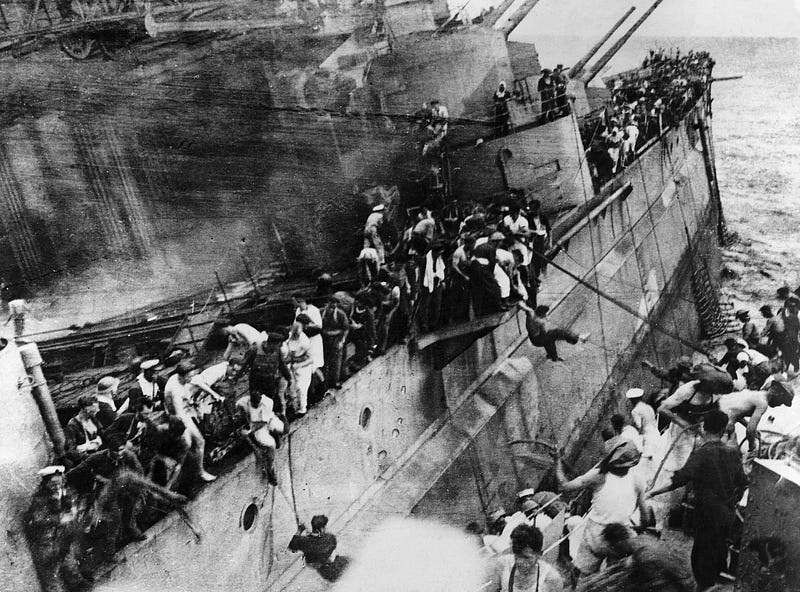
Crew fleeing the "The Prince of Wales" after the Japanese aerial attack. Source.
The West Point sailed on to Bombay, India, where Jack finally disembarked. They moved by train to the British base at Ahmednagar. But it was at this same time that the Japanese army struck Malaya hard and advanced quickly, routing British forces at each turn. Village by village, the Imperial Army hurled European colonial forces back, and the British withdrew to Singapore, regarded as a “great fortress and Far East base.”⁹ With these developments came new orders for Jack’s division: To reboard the West Point and other troop transports and dash to Singapore to shore up their defenses.
“Standing on the deck in the darkness as we neared our destination I would sometimes wonder how I would acquit myself in the fighting to come. I think everyone has these thoughts as the hour approaches for battle.”¹⁰
After disembarking, they were met by an Australian soldier who asked “‘What have you bastards come here for’, we answered ‘We’ve come here to help you mate.’ He replied, ‘We don’t want no bloody help, we’re getting out of here as soon as we can.’”¹¹
At the point that Jack arrived, the Japanese enjoyed absolute air superiority. The bombing and strafing was nearly constant. Jack’s unit set to work reinforcing Singapore’s defenses, digging trenches and preparing for a Japanese ground assault. But the fate of Singapore seemed a foregone conclusion.
“We saw the RAF abandoning Seletar aerodrome and lorry loads of personnel on their way to the docks. It was a strange feeling to witness [it], the air force had gone, the naval base was wrecked and on fire, all ships had left…It was with great bitterness we awaited the onslaught to come.”¹²
On the 8th of February, 1942 Jack caught wind that Japanese forces had landed on the island and that they were pushing forward against the Australians. His battalion took up positions in the center of the city. “We got very little news how the battle was going, but to my mind it seemed to be getting nearer which meant our troops were pulling back.”¹³
In the midst of the fighting, Jack lost his regiment, the First Cambridgeshires, and another commanding officer assigned him and his friend Charlie to guard some twenty-five pound guns at a strategic crossroad. On the 13th of February, Japanese planes attacked the gun site. Jack and other gunners opened up furiously to repel them.
“One lone [Japanese] plane came in very low and slow straight at us. I said to Charlie, ‘this one’s mine,’ and opened fire. Almost immediately, six bombs came out and I knew they were right on target. Charlie fell backwards into a shallow trench and I dived on top of him. The next second there was a tremendous explosion and then darkness. Coming round a few minutes later I could hear Charlie groaning in pain under me and we were partially buried…For the rest of the day I was very careful not to fire at any plane coming straight towards me.”¹⁴
By the 15th of February, the British and Australians were overcome. “Around four o’clock the firing seemed to die down with only occasional bursts and the big guns had stopped firing. An officer came to me and said, ‘It’s over lad, unconditional surrender lay down your arms.’ I was amazed and said stupidly ‘Who has surrendered?’ He said very close to tears ‘We have,’ and turned away.”¹⁵
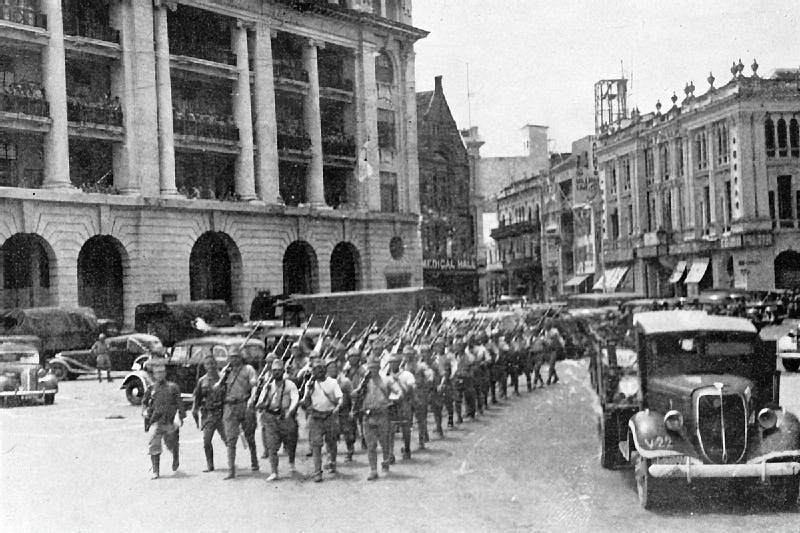
Japanese soldiers enter Fullerton Square, Singapore. Source.
Jack fell in with a long column of British troops marching up to Changi.
“The [Japanese] made the most of their glorious victory by ordering all prisoners to parade alongside the main road. For miles, fifty thousand troops were strung out and after some hours the top [Japanese] general were driven slowly past followed by a film crew in the back of a lorry.”¹⁶
The Japanese moved many British soldiers who fought in Singapore north to Thailand to construct a railway. Jack pressed into a tightly-packed train car with the other prisoners. As they were in route, one of their Japanese guards started shouting and ran to the door of the car — he had diarrhea.
“The lad was saying ‘Benjo,’ which meant he wanted a crap. It was most embarrassing for the lad as two of us had to hold him while he got busy. All through the night this was repeated several times and in one case [the] lad didn’t make it and some feces deposited near [his] bed space. He went bloody crazy lashing out, while the stench of tightly packed bodies and excreta on the floor was enough to make anyone vomit.”¹⁷
Camp conditions in Thailand were abysmal. After their long, grueling train ride, plagued by roasting heat and thirst, they arrived at Kanchanaburi and proceeded to Chong Kai, the prisoner camp situated on the banks of the Kwai Noi River (which may sound familiar if you’ve seen the movie The Bridge on the River Kwai starring, among others, Alec Guinness, and which features the same events that Jack describes here).
“One morning I awoke and on slipping off the end if the platform in the darkness went up to my waist in filthy water. The river had burst its banks during the night and silently flooded the camp…the latrine trenches had naturally filled and sewage was floating everywhere.”¹⁸
The Japanese tasked their new prisoners with building an embankment for the future railway. The project seemed to be running behind and so the guards beat and harassed their captives. Since active resistance was likely to get one killed, Jack and his fellows attempted to slow their work down.
“It was a scorching hot day in mid-afternoon they increased the length of banking for us to do. This really got our backs up and we started to slow down and play them at their own game….We were saying ‘they will have to let us go when it gets dark,’ but just before darkness fell new guards came out carrying large acetylene lamps…the bright lights seemed to attract every moth and insect from miles around…still we slogged away and at 3am the job was completed…Arriving back at [camp] we just threw ourselves down hoping to get at least three hours sleep before we started again.”¹⁹
Thievery in the camp also abounded. Thai traders would come by to sell fruit and other foods and some prisoners stole precious clothing or blankets from their would-be comrades and hocked them through the fence.
“One old friend of mine was very ill and in the early hours of one morning felt his blanket being pulled off of him. He was too weak to hold onto it and on calling for help to the orderly it was too late. The blanket had gone and [was] flogged in minutes. My friend died at 0800 hours that morning.”²⁰
The prisoners spent Christmas of 1942 and the New Year a world apart from the comforts of home and loved ones in the bug-infested, stinking camp at Chong Kai. Jack was laid up for nearly a week in early December recovering from a bout of malaria; his delirium made him forget all sense of time. So, when Christmas arrived and their guards let them have the day off, the camp was overjoyed.
“I was awakened before dawn by a choir singing ‘Christians Awake,’ and hearing that coming from a small church opposite was magic. I am sure many a married man shed a tear and thought of their wives and children so far away on this special day. I went down the river [and] had a good soak…I felt a new man and thought God is on the banks of the River Kwai today.”²¹
Jack’s work crew continued to build embankments for the railway for almost all of 1943, moving from camp to camp: Bankao, Tarsao, Wan Lung, Pukai, Hindate, Tonchan, Kinsaiyok, Takanun. Atrocities repeated themselves in each place: Thievery, cruelty by the guards, disease, pests, death. In one camp the crew was working beside a large rock face:
“One day a lad going to the cliff edge to deposit his rocks turned dizzy and toppled over the edge crashing down about twenty feet onto rocks below. Lying badly injured unable to move, his mated start to get down to help, but the [Japanese] stopped them and one ugly bastard picked up a basket of rocks and hurled it down at the poor lad. Feelings ran very high at that moment and only [Japanese] guards with rifles held us back. The poor lad…died later.”²²
By 1944, the tide of war was turning against the Japanese. The Americans started a vast island-hopping campaign in the direction of Japan itself. In June, Saipan and the Marianas would be in the control of the United States. In October, General Douglas MacArthur would triumphantly return to the Philippines. In response to labor shortages at home, caused by increasing numbers of men sent to fight, the Japanese began importing prisoners of war to their home islands to assist with the war effort. Captured allied troops were put to work in construction, mining, munitions factories and other areas.
“Around March…rumours were heard that parties of the fittest men would soon be on the move to Japan. Many of the lads were thinking up plans to dodge this one…I thought hard about it and decided to go along whatever fate decided. A few weeks later a party of 750 men was picked out at Takanun and told we were to go down country and be kitted out ready to go to Japan.”²³
Jack and others given this assignment piled into a train car and rode on the railway they helped build back down to southern Thailand and then on to Singapore. In June, they boarded the Asaka Maru, which was a merchant vessel purchased by Japan in between the first and second world wars. The voyage would be long and terrifying. And in many ways, being on board a ship was a setback in quality of life compared to Chong Kai and the other camps. Food, water, and supplies quickly ran short, and one morning the ship found itself in the midst of a developing typhoon somewhere north of the Philippines.
“As the day wore on conditions got much worse and by late afternoon huge waves were breaking over us and we were really in danger of being swept overboard…Myself and a young Scotsman were clinging to a thick rope on the forward hatch cover…All the deck cargo was carried away, the old shitboxes had long gone and two giant iceboxes on the stern were sliding from side to side smashing everything in their paths. Daylight saw us hard on rocks [the ship had beached in the night during the storm]…We decided to see if we could find something to eat. We knew the [Japanese] crew were saving all the burnt rice off the boiler to take back to Japan so we smashed down a door and inside were some sacks. The rats were everywhere they had torn great holes in the sacks and slabs of burnt rice were gnawed. It was a battle between us and the rats, which we won. It wasn’t long before we were all busy wolfing a few mouthfuls. Someone said, ‘It stinks of rats shit and piss.’ Another said, ‘If you don’t want it sling it over here.’”²⁴
Two Japanese destroyers appeared the next day and towed the Asaka Maru off of the rocks and all of the prisoners of war aboard transferred to one of the destroyers, where hundreds of them were made to sit on the deck. The warship sped through the cold wind and lashing rain through the night (“this was one of the most horrendous nights I have ever spent”²⁵) until they linked up with another merchant vessel called the Hakusan Maru and transferred the prisoners. Aboard their new transport, the Japanese gave them their first food in five days — rice and beans. The ship began the last leg of the journey north to Japan. This time, rather than being allowed to wander the deck, nearly seven hundred POWs were forced into the ship’s hold. None of the assortment of Brits and Scots had any idea how far there was to go, and they were crammed together with other men suffering from dysentery. The heat and lack of fresh air in the hold was unbearable. Then, more chaos struck. American submarines had found the convoy.
“The third night around ten pm a tremendous explosion reverberated through the vessel. In an instant everyone was awake and running footsteps overhead proclaimed the convoy was under attack. At that moment the large watertight doors closed sealing us in and the one single bulb we had went out leaving in pitch-blackness. Knowing the doors were closed I though the bastards are not going to let us out if we get torpedoed. Lying beside Jack Armstrong I whispered to him ‘If we get hit let’s hope it’s right here so we get blown to bits. We don’t want to go to the bottom still alive.’ The attack last some hours and next morning some men were taken out into a sick bay, more dead than alive.”²⁶
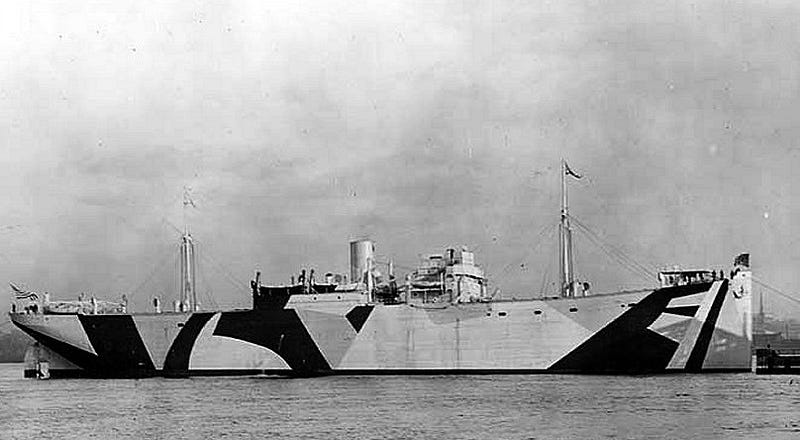
The Hakusan Maru. Source.
Unlike so many others, the Hakusan Maru, remaining intact, found the port of Moji on the Japanese home island of Kyushu. Guards herded the POWs into a large building, where the haggard prisoners stripped off their clothing and were made to bathe in a large, shallow pool. “What a wonderful feeling to immerse oneself in hot waters. It was the first hot bath I had been in since 1941 on my way abroad.”²⁷ Old Japanese women issued the prisoners new clothes, which were ill-fitting, but a big upgrade from the filthy rags they wore on the journey to Japan.
The prisoners were marched to the town center where their captors divided them up into work gangs. Jack, still with his friend Jack Armstrong, managed to stay together. They learned they were destined for the Ube POW camp, on Honshu, where detainees mined coal for the war effort. Several of the men in the work detail groaned. Mining coal was notoriously hard and dangerous labor. But upon arrival at Ube, they were pleasantly surprised by the quality of their accommodations. The huts were clean, and Jack was issued a blanket, a possession he never had in Thailand, and given a straw mat to sleep on. Rations were plentiful. Discipline in the camp, however, was tough.
“We had to get used to a system whereby every move we made outside our hut had to registered on a board outside every room. A wooden disc with one’s number on it had to be moved to the appropriate nail showing your destination. Failure to do this meant a smack across the face or a long period out of bed in the middle of the night standing maybe on one leg with arms outstretched.”²⁸
Work in the coal mines was tough going. Cave-ins were a constant concern, and the height of the mine ceiling where Jack spent much of the day was no more than three feet high. As the war went on, the camp overseers provided fewer amenities as, on a national-scale, resources dwindled. Word came that the Americans were getting closer.
“The [Japanese] were really running short of everything, my rubber plimsolls fell apart one day down in the pit on a late shift and I had to carry on barefoot…Just imagine working at a coalface with bare feet. I stubbed my toes continuously and by the end of the shift could hardly hobble to the surface.”²⁹
In the summer of 1945, the first American B-29 bombers roared overhead, marking the start of a massive, ongoing strategic bombing campaign.
“It caused us a lot of problems, as any raid on the [Japanese] mainland meant the [guards] would get us into the shelter and make sure we got no sleep…The…civilians began to turn nasty as they got a pasting.”³⁰
The Japanese crew leaders lost family members in the night raids and their resentment became clear. While the mine itself was largely untouched, much of the town surrounding Ube Camp was incinerated with the continuous bombing.
“Our leader turned really nasty and one day for no apparent reason…knocked me down whilst I was busy hacking away at the coal face. I leaped up in a temper, pick in hand and for a second was going to smash his face in. He also got a pick and we stood facing each other snarling like two wild animals.”³¹
Jack’s crew mates jumped in and managed to defuse the situation. Punishment for disobedience in the mine could be severe, or fatal.
The morning of the sixth of August, Jack was loading props for the mine when the air raid siren sounded. Some high-altitude aircraft passed over. A short while later:
“there was a brilliant flash and long rumbling roar the like of which I had never heard before. ‘Christ they have hit something big somewhere ,’ said a voice, ‘must be a big arsenal down at Moji.’…we marched down the road [and] there before us was a huge plume of cloud shaped like a mushroom, which seemed to be sucking everything up thousands of feet into the atmosphere.”³²
They wouldn’t know it until later, but between 70,000–80,000 people died instantly in that moment.

An aside: I find it astonishing that Jack, among all of the sights and terrors he experienced, also witnessed the explosion of the bomb at Hiroshima. Out of curiosity, I found the records and location of the camp at Ube and confirmed that Jack was a POW here since his name appears on the spreadsheet roster provided on the camp report.
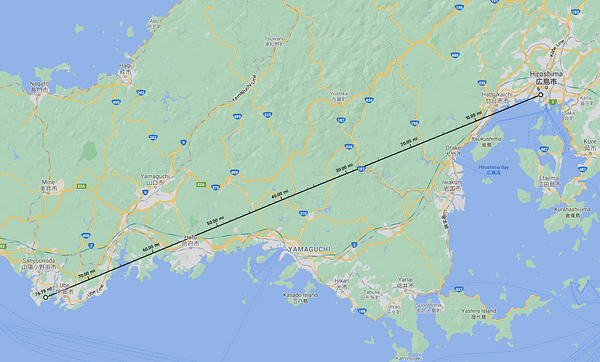
Jack was about 77 miles away from the blast.
It is approximately 77 miles on a straight line from the camp’s location to Hiroshima. So, it seems possible that Jack could have seen the flash and plume, which grew to approximately 7km tall. But I’m not as sure about the rumbling sound he claimed he heard, but I don’t have good evidence to show otherwise. And though Jack described seeing and hearing the blast at Hiroshima (15 kilotons), I find it curious that he did not mention the explosion at Nagasaki, which sat approximately 115 miles away from his camp, on which the United States dropped an even larger yield weapon (20 kilotons) three days later. One other odd aspect of the account is that someone thought the bombers had hit the arsenal at Moji port, which is in the opposite direction of Hiroshima relative to Ube. I’m not sure what to make of that.
As for the reference to the high-altitude planes passing overhead prior to the bombing, it is unlikely this was the Enola Gay (the B-29 carrying “Little Boy”) and its escorts. The flight path was at least 70–80 miles away from Ube both to and from the target.
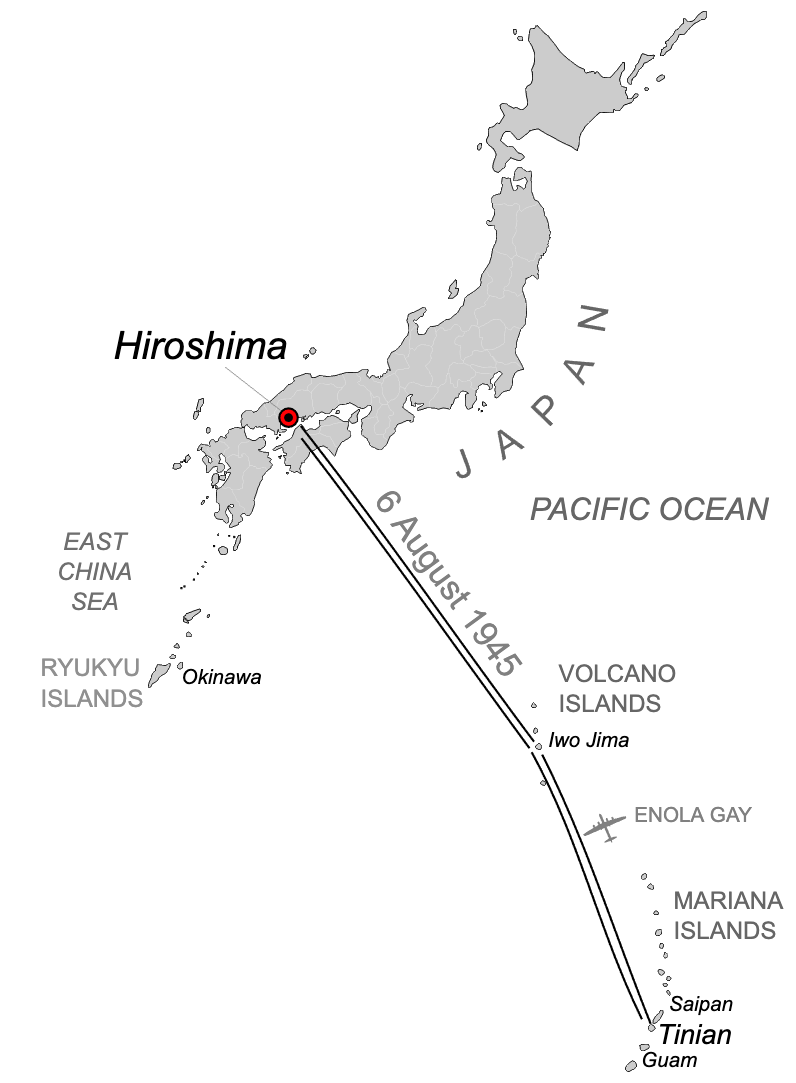
Path of the "Enola Gay." Source.
I have no doubt that Jack’s account, so full of specific and personal detail, is accurate, but memories like this one can morph and embellish over time, especially with all of media attention given to Hiroshima in the aftermath of the war.
Anyhow, after the bombings of Hiroshima and Nagasaki, life in the mines at Ube continued mostly as usual. But on the 15th of August, the Japanese workforce and camp guards were nowhere to be seen. With no one forcing them into the coal pit, the POWs just dropped their tools and laid out in the sun.
“Around 3:30pm the guard returned and [motioned that they all return to camp]…I was strolling along on my own when a small Japanese lad came out of his small little house and putting his arms up said, ‘Japan finish.’ Turning to the next chap to me, I said this kid says the war’s over. He looked at me and said ‘Oh yes?’ and we walked on unconcerned.”³³
At camp, the guards performed the evening role call. No one at Ube gave any indication that the surrender had occurred.
“I did have my doubts about victory…we all lay down to sleep and soon the normal sounds were heard…all I was dreading was the [air raid] siren going off. If that happened I should have gone made as all my hopes would have been dashed to pieces.”³⁴
The night passed free of air raids and screeching sirens. Unusual. The next morning, no one rounded up the prisoners for coal mine work. As with the next day. With all of new-found the time on their hands, the prisoners depleted their stock of cigarettes and some began agitating to break into the Red Cross rations the guards stored in the mine in case of invasion. Lots of cigarettes there. A group of the POW officers went to the Japanese commander to request the use of the rations. After some initial resistance, the commander relented and admitted that Japan had surrendered, so there was no point to conserving the supplies. It was official. “I felt so content all the pressure that had built up over the past months had gone and putting my hands together I thanked God for my deliverance.”³⁵
Japan was so ravaged by the persistent allied bombing throughout most of 1945, that the local population had trouble feeding themselves, not to mention prisoners of war. Aware of this situation, the US military started running supply drops for POWs with the same B-29s that previously laid waste to Japanese cities. Jack and his comrades at Ube painted “POW” in huge white letters on the roofs of their camp houses to attract the drops.
“It was a wonderful sight, dropping down to us [were] all of the things we had only dream about all those years…soon we were busy rolling forty-gallon drums full of food and medicines into camp…Some drums came down with the chutes unopened and crashed like bombs onto the small [Japanese] houses and caused some casualties…I entered one house where a large drum full of tinned fruit had smashed through the roof and trapped a woman by the legs…We hastily rolled the drum off her and while a doctor was sent for we dished out some tins of fruit to the kids.”³⁶
In mid-September, the prisoners finally moved out. They loaded onto trucks and solemnly departed Ube camp for a local train station. The trains this time were unlike the cattle-car style transports they had been subjected to in previous transfers. These ones contained tables and comfortable sitting areas.
“Stopping at one station I noticed a large banner across a footbridge that said [in English] ‘Welcome to Totori,” but the lads just ignored it and the announcer who was talking to us in English. We wanted no more bullshit.”³⁷
Upon reaching Wakayama, a Japanese port city, they boarded a US hospital ship and set off for Manila harbor, in the Philippines, where the Royal Navy waited to take them home.
“It was the aircraft carrier HMS Glory, what a magnificent sight, which brought a lump to my throat. Soon after boarding she weighed anchor and we were on our way across the Pacific. At the ned of hostilities the Glory had got rid of all her planes and take a load of Australian POWs home to Sydney then back to Philippines for us. The Navy did us proud, nothing was too much trouble on that long voyage…It was sunshine all the way and any sign of a storm the skipper would change course to avoid it.”³⁸
The journey home took Jack to stops in Pearl Harbor, Victoria (British Columbia), and New York, where they boarded the Queen Mary for the final leg across the Atlantic.
“Came the dawn of Sunday 18th November 1945, coming up on deck with the sight we had dream of all those years, the shores of good old Blighty…At the back of my mind I wondered what sort of reception we would receive, what news from our families…Would we be able to settle down in civilian life after all the horrors of the past four years?”³⁹
They disembarked and trucked to a camp at Southampton for a round of medical examinations. This was particularly frustrating, since many former-POWs were judged in need of medical care and forced to stay in the hospital. Jack, however, escaped delay and, on the 20th of November made his way home via train. Upon reaching his stop in Cambridge, a porter approached Jack:
“‘Someone is going to pick you up shortly.’ Standing outside the station in the darkness all sorts of emotions came over me, excitement, fear of what might have happened while I had been away. At last a car came into the yard. It was my old employer, Lionel Long…As we neared Woodditton I asked Lionel if my mother was still alive or if any of my brothers had been killed. He said, ‘I think think they are all still alive’…Pulling up in front of the house I saw my poor old mum hurrying down the path, she looked so much older than. she did four years ago with all the worry she had endured…We spent the evening catching up with all the news, sorting all my kit out, giving the kiddies some American chocolate sweets, [which] were still rationed for some years to come.”⁴⁰
Jack closes his account with a short epilogue.
“I entered the war a young teenager full of excitement, thinking of seeing strange lands and strange people also the added thrill of doing some fighting…I came home a vastly different person. As a prisoner I reached the depths of depravity and despair…all I wished for [were] the basic necessities of life instead of the lust and greed we all have for money and possessions in the present day…I am still very bitter and will never make friends with the Japanese. Some people say I am wrong, but they don’t know, they did not witness the things I saw, lucky for them. I will finish now with the ‘Burma epitaph’: ‘When you go home, tell them of us and say, for your tomorrow, we gave our today.’”⁴¹
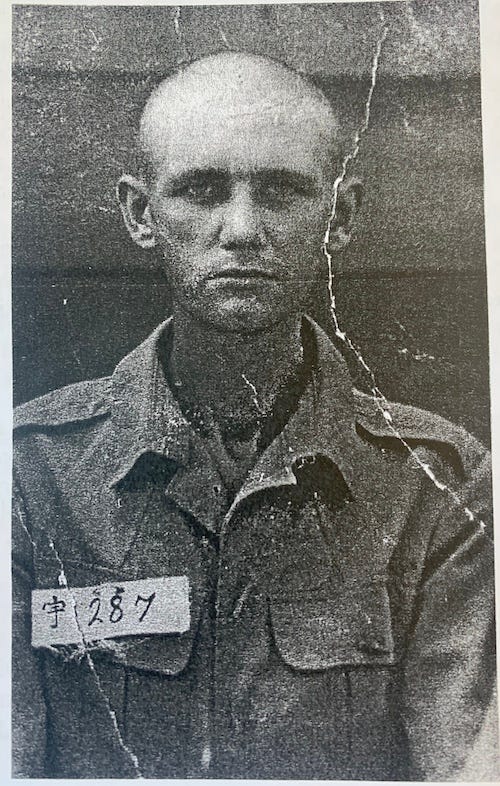
Jack, 1944.
Many thanks to Sue Ecclestone for all of the photos of Jack in the piece and for the original transcription of Jack’s journals.
Quote references1. Jack Scrivener, Memories: An account of life as a soldier and Far East POW during World War II (Published by Sue Ecclestone, 2000), 1.
2. Ibid, 2.
3. Ibid, 8–9.
4. Ibid, 11.
5. Ibid, 1.
6. Ibid, 25.
7. Ibid, 26.
8. Ibid, 26.
9. Ibid, 29.
10. Ibid, 29.
11. Ibid, 30.
12. Ibid, 32.
13. Ibid, 33.
14. Ibid, 35.
15. Ibid, 36.16. Ibid, 39.
17. Ibid, 46.
18. Ibid, 49.
19. Ibid, 49.
20. Ibid, 51.
21. Ibid, 50.
22. Ibid, 61.
23. Ibid, 69.
24. Ibid, 74.
25. Ibid, 76.
26. Ibid, 78.
27. Ibid, 80.
28. Ibid, 81.
29. Ibid, 84.
30. Ibid, 85.31. Ibid, 86.
32. Ibid, 88.
33. Ibid, 88.
34. Ibid, 88–89.
35. Ibid, 89.
36. Ibid, 91.
37. Ibid, 93.
38. Ibid, 94.
39. Ibid, 96.
40. Ibid, 96.
41. Ibid, 99
